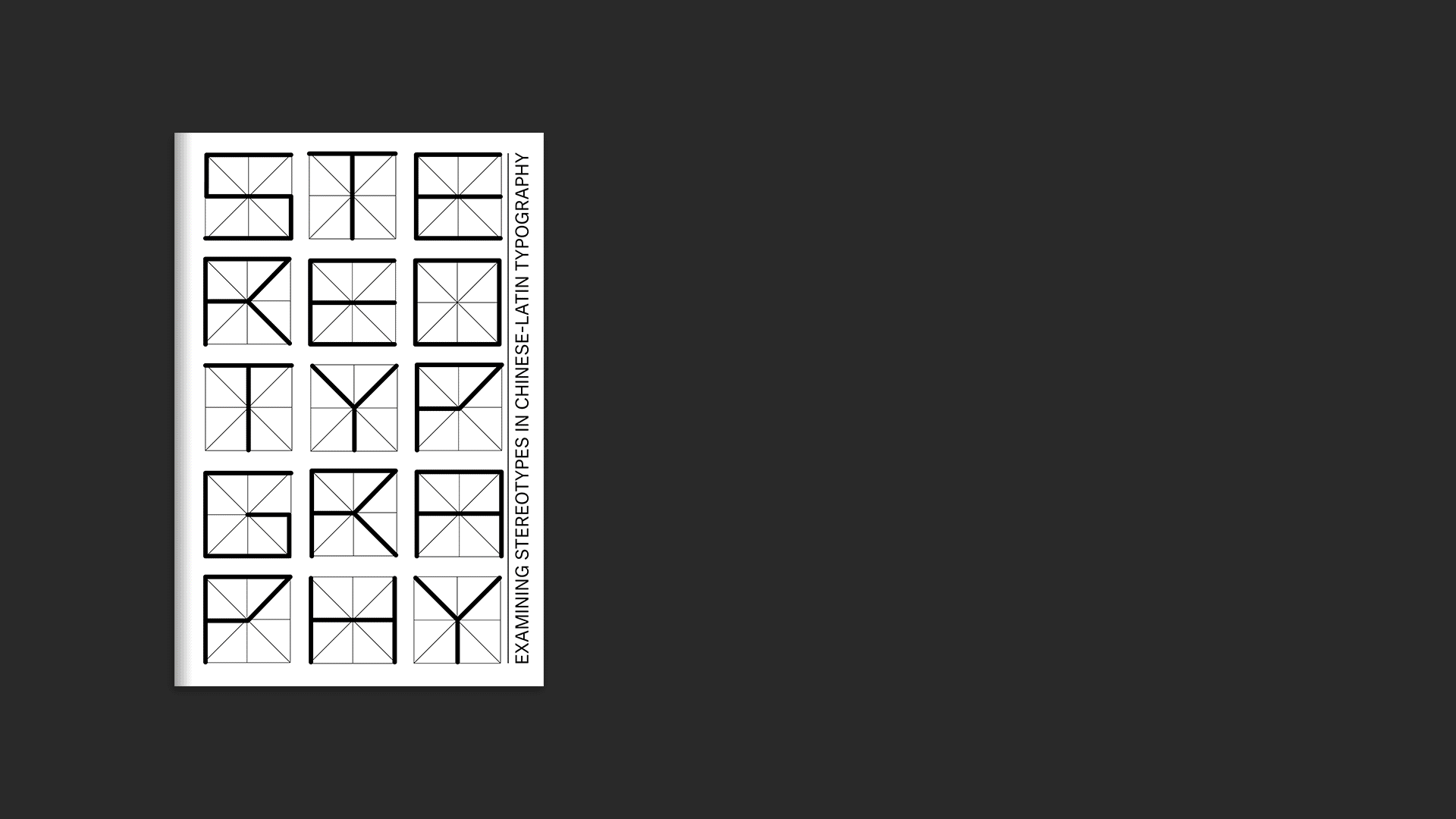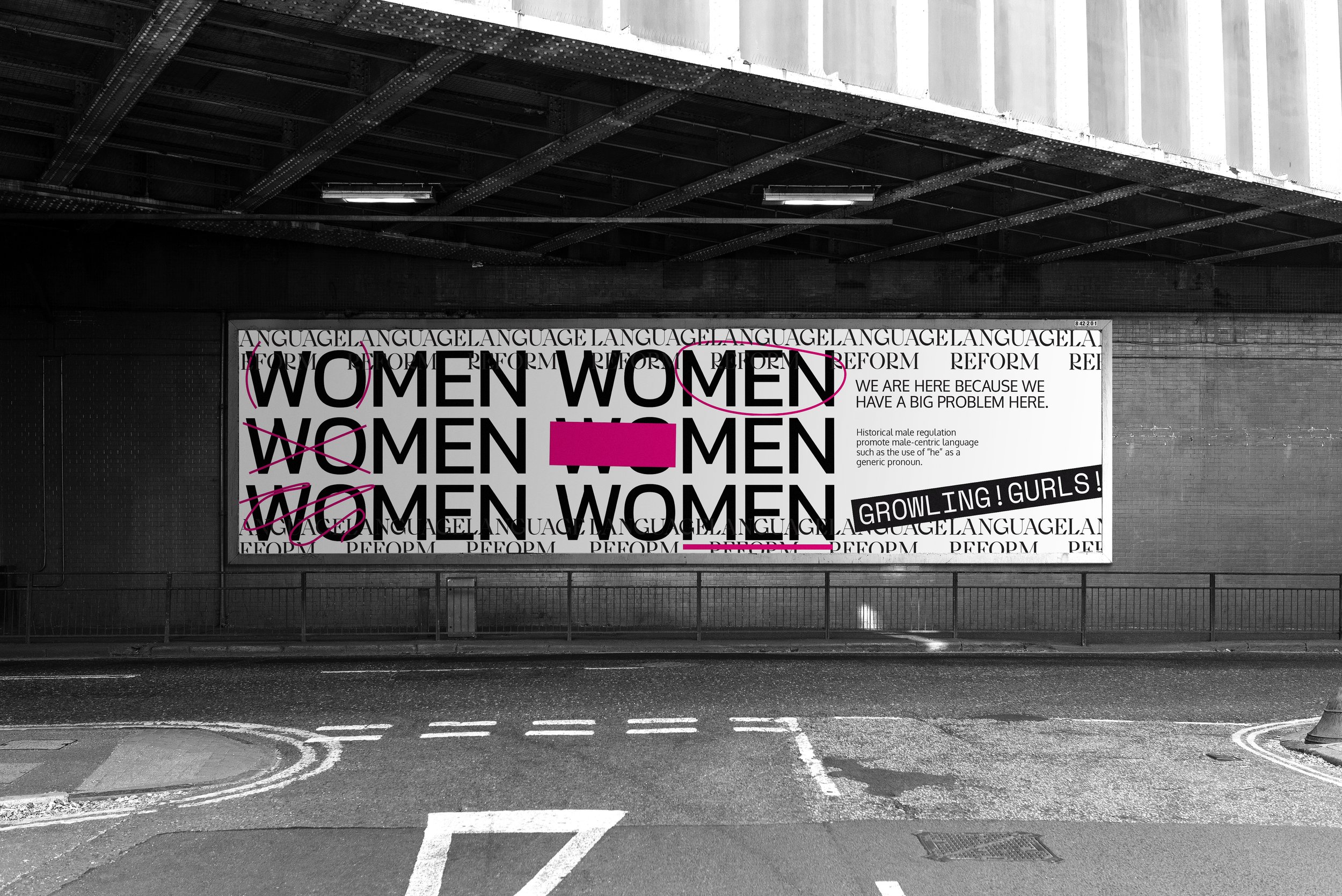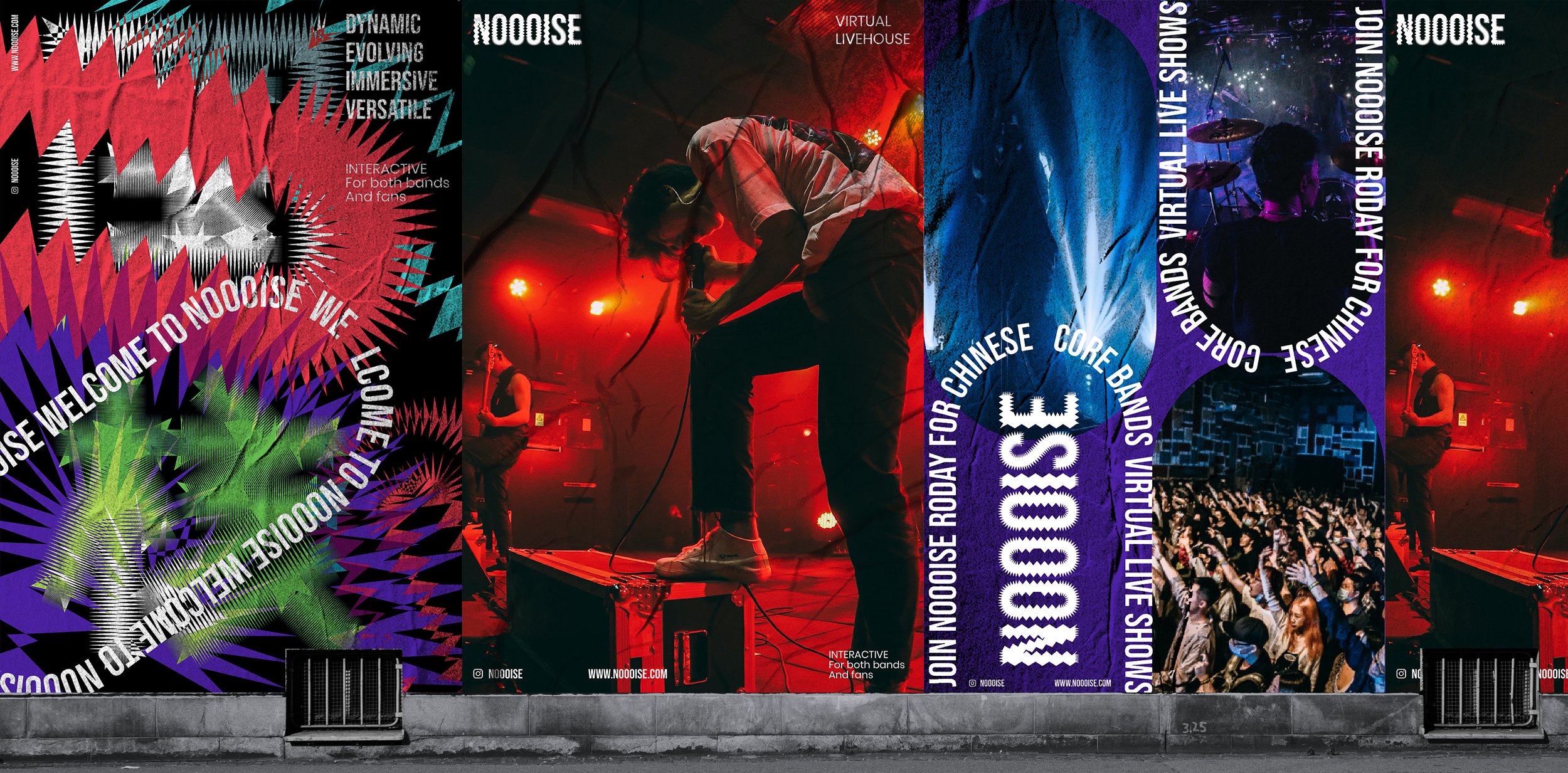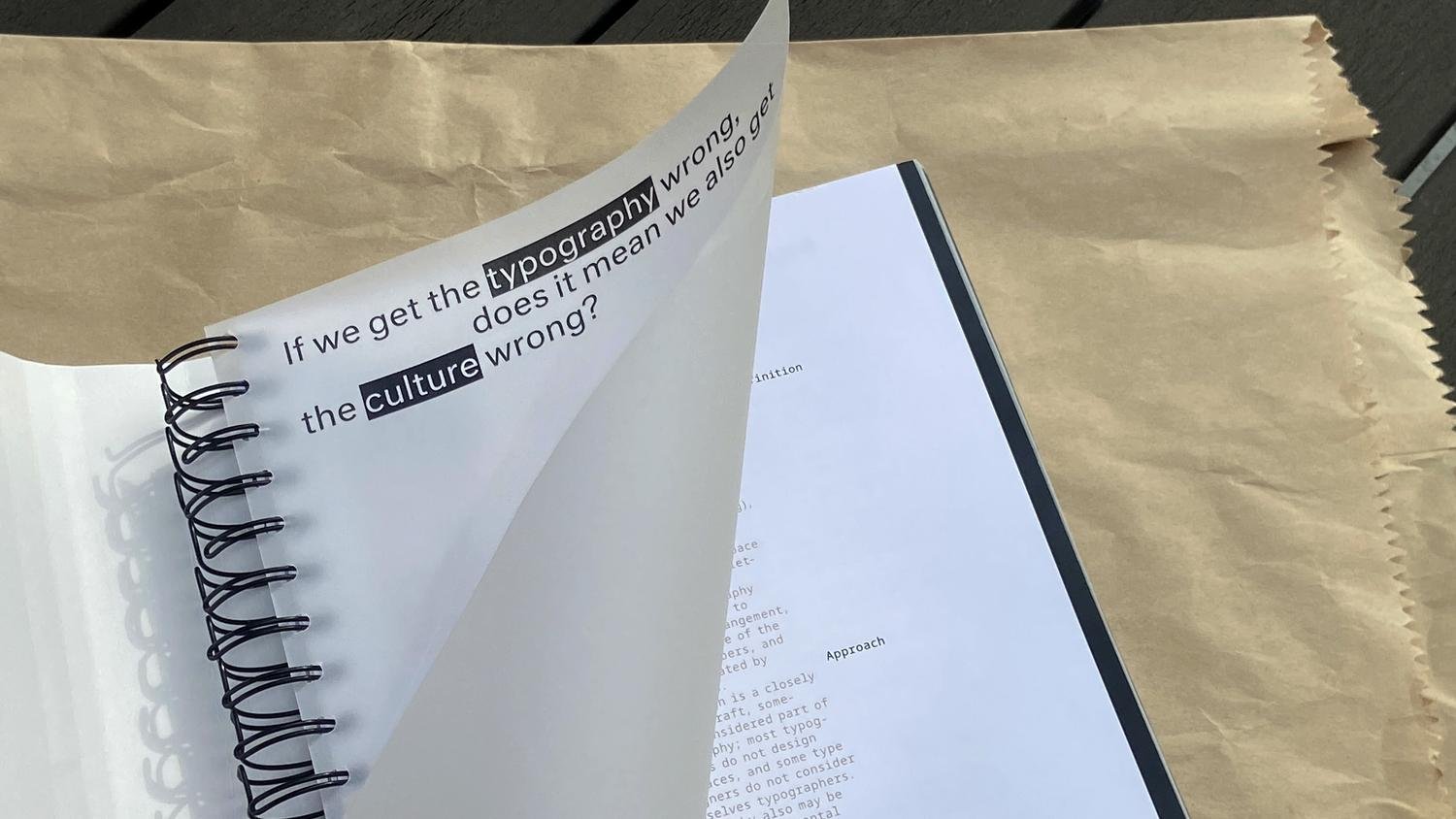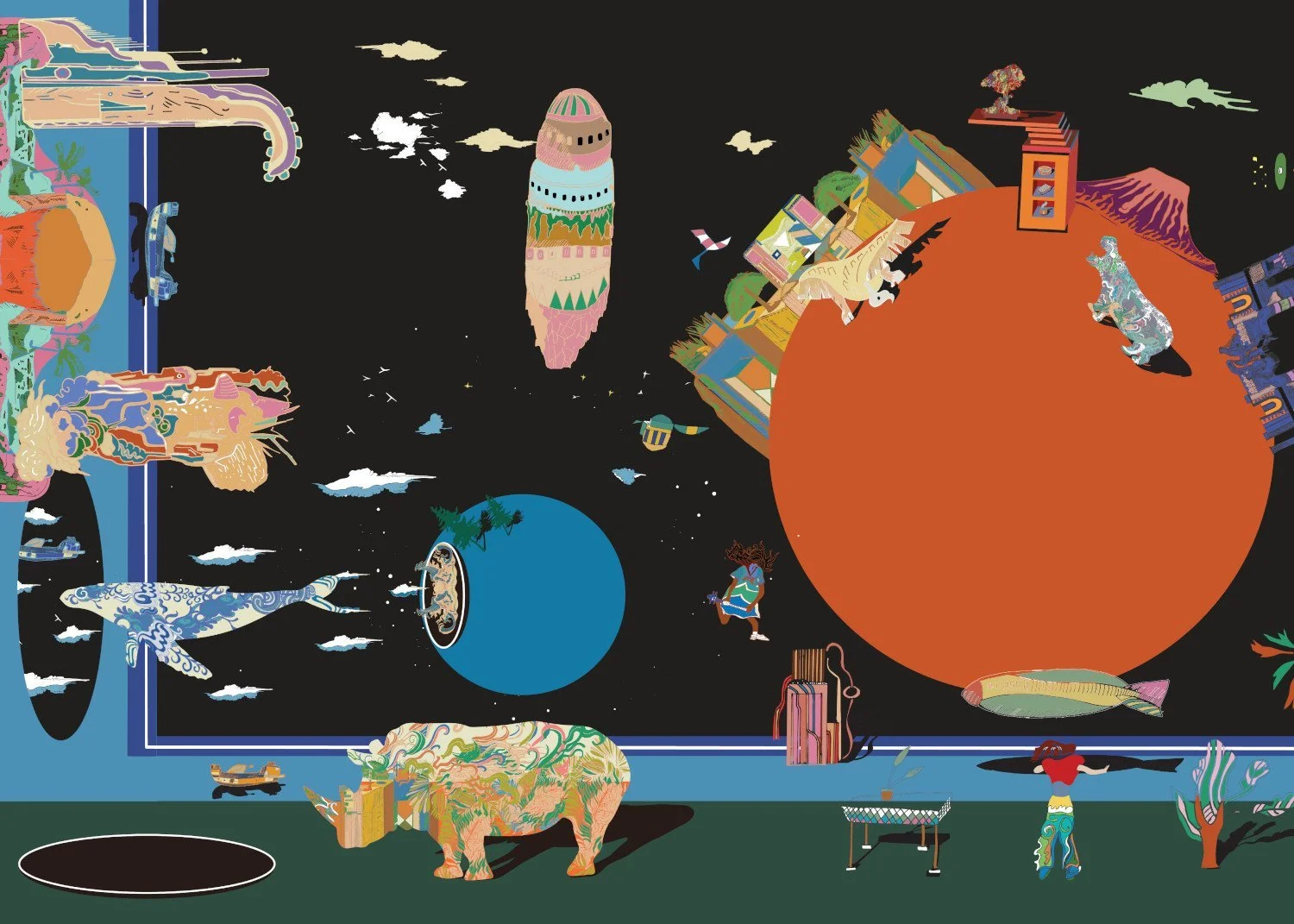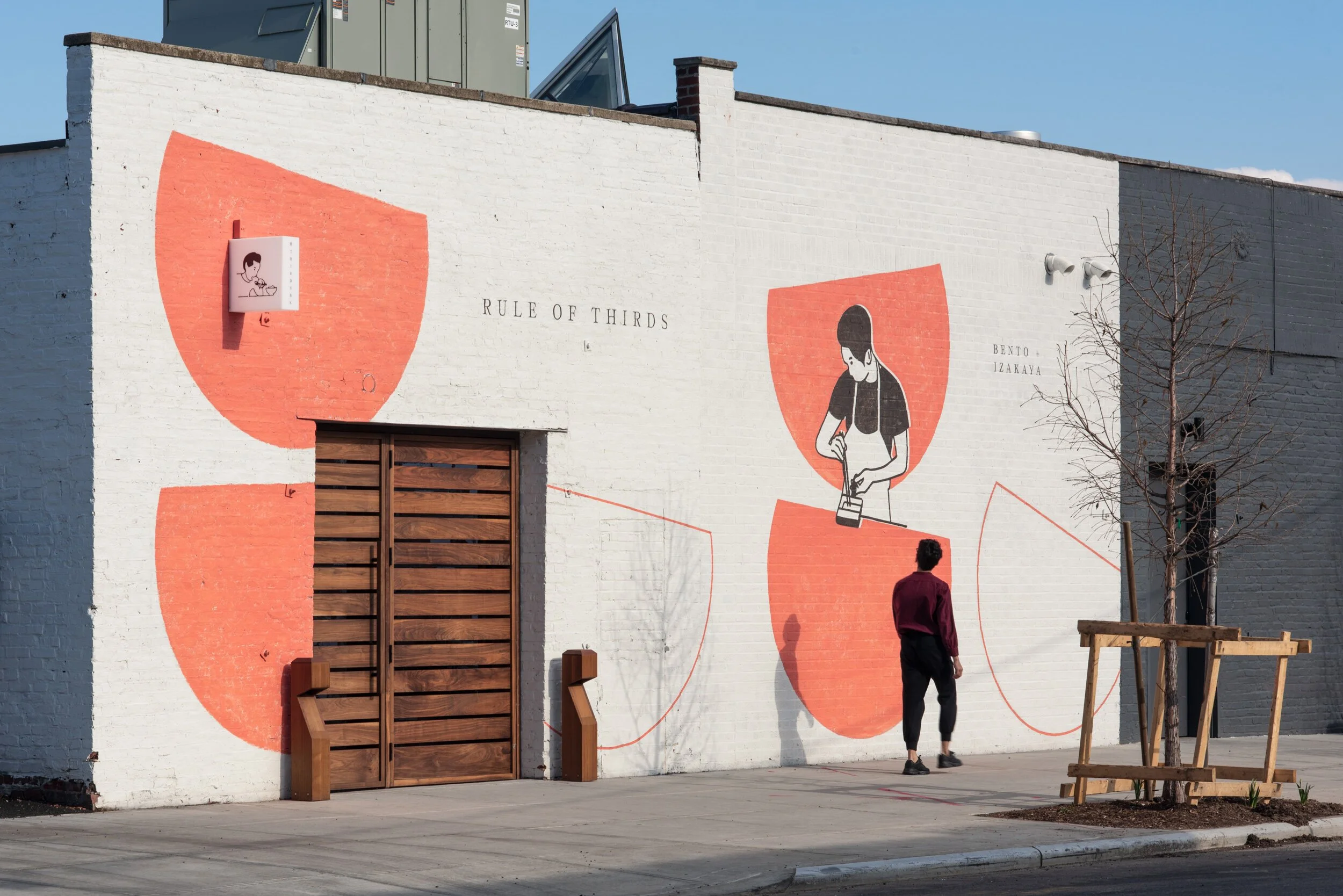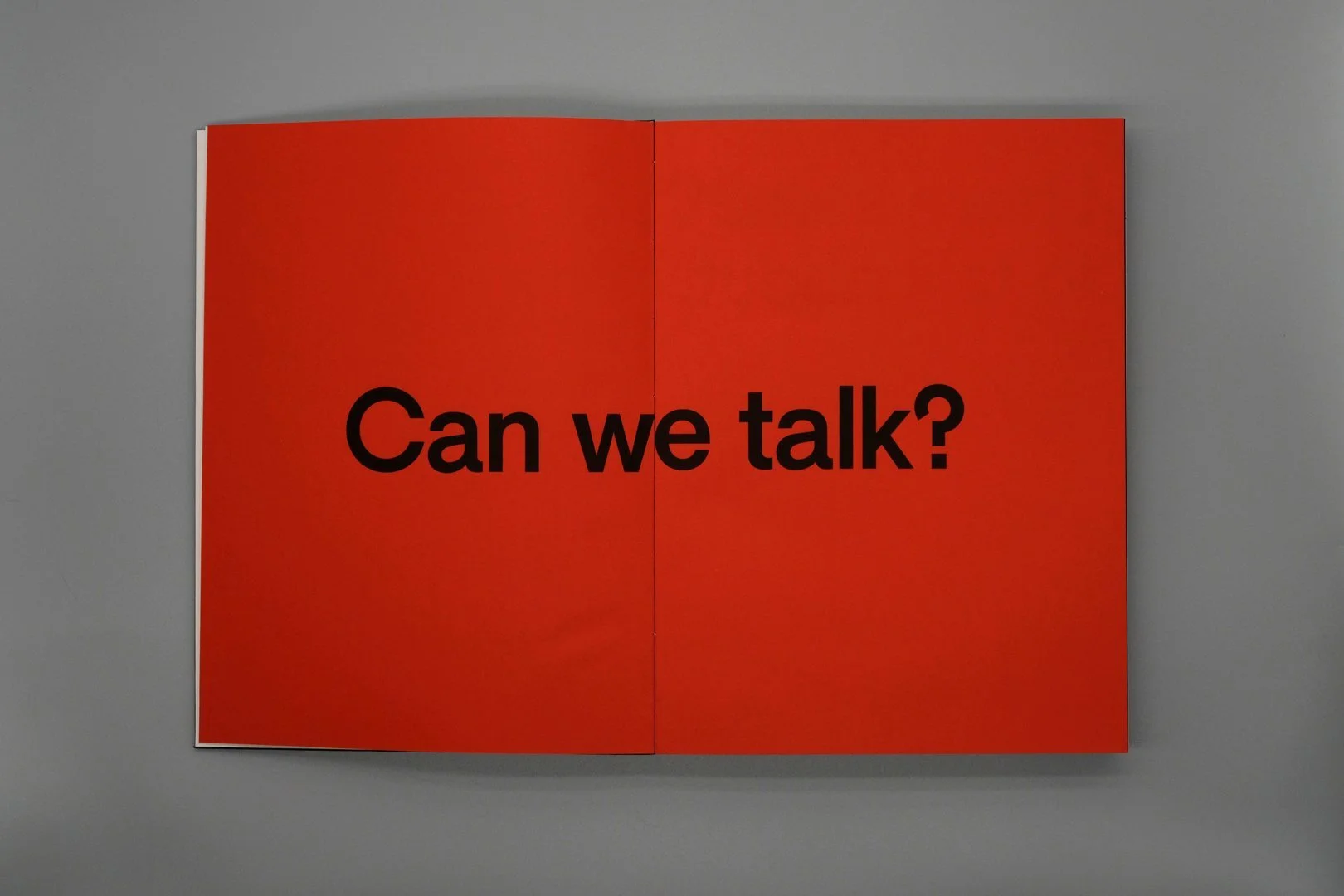10 Questions with Ellis Yu
Ellis Zhixuan Yu is a multidisciplinary graphic designer and illustrator. She combines in-depth research and dynamic visual language with transmedia storytelling in her works. Ellis explores the vast systems of design, ranging from typography and brand development to intricate visual system mapping. She explores cross-culture conversation and fusion with a particular emphasis on typography and brand identity. Ellis's expertise spans various disciplines, allowing her to translate her vision into impactful designs across print, digital, and spatial mediums. Her thesis work examines the stereotypes in Chinese-Latin typography, for which she incorporated emerging media, including creative coding and spatial installations. Ellis holds a BA in Visual Communication Design from Shenzhen University, China, and a MFA in Graphic Design from ArtCenter College of Design. Her works have been recognized by Graphis and Young Ones ADC.
Ellis Yu - Portrait
ARTIST STATEMENT
Ellis Zhixuan Yu's artistic journey began with years of classical painting training before discovering her passion for transmedia graphic design. Through her cross-media installations and publications, she establishes a platform for her own personal expression and meaningful engagement with the society she lives in. Driven by a deep curiosity for cross-cultural interconnections, Ellis strives to bridge the gap between Eastern and Western cultures, challenge preconceived notions, and ignite meaningful conversations. As a multidisciplinary graphic designer with an emphasis on brand identity development, her work is rooted in in-depth research and combines strategy, copywriting, and flexible design systems. Ellis constantly seeks new ways to push the limits of design, creating work that provokes and challenges viewers in profound ways.
Stereo(type)ography, Zine, 2022 © Ellis Yu
INTERVIEW
Let’s talk about yourself first. Why are you an artist, and how did you become one?
Since my childhood, I have always been recognized as the “art kid” among my peers. I was particularly interested in painting, always waving paintbrushes and pencils and capturing everything I experienced. Although no one in my family works in the creative industry, they were supportive and encouraging along the way, taking me to museums and parks to take in all the inspiration. I began to appreciate everything visual, from well-dressed anime characters to fancy neon signs. As I surrounded myself with art, I knew in instinct that I pursue a career in the art-related field. During my early years, the only art-related occupation I was aware of was that of an art teacher in school. However, as time passed, I discovered other avenues, such as fashion design, illustration, and graphic design, which brought unlimited opportunities for me to dream about what I could become in the future.
You work primarily with illustration and graphic design. Why did you choose these mediums specifically over other mediums?
I had years of training in classical drawing before really delving into studying graphic design, but later I realized that I had been practicing graphic design without even realizing it. During my elementary and middle school years, we always had to curate a “newsletter” on the blackboard each month, and I actively participated in the whole process. I was engaging in layout design, type design, and illustrations without knowing they were all integral parts of graphic design. I love creating art for myself, but I also enjoy curating work for others. To me, knowing that what I work on can be influential to others is always a part of my motivation.
Upon entering college, I decided to put all my heart into graphic design. For me, it is a medium that allows me to incorporate various other art forms into my work. In one of the posters I created, I used illustration and type design to represent how music could influence us emotionally, which won an advertising prize. Throughout my school years, I got to do a lot of things outside of ordinary school work and dug deep into how to work on different projects and subject matters.
Stereo(type)ography, Introductory Zine, 2022 © Ellis Yu
How would you define yourself as an artist?
I consider myself a blend of a self-motivated artist and a business-minded graphic designer. I enjoy creating art, such as paintings and sculptures that are personal. In my professional career, I am a brand designer, working with clients on commercial and cultural projects for the mass public. These works are actually making an impact socially or commercially on the world we live in. As they were completely different roles, I found myself always learning from one and bringing that experience to the other, which is the core of my creativity.
What messages are you trying to communicate with your art? And what do you think differentiates your approach from others?
My time as an art teacher working with young children provided a valuable lesson: every aspect of our lives shapes who we are. The children I interacted with had remarkable sensibilities to the world around them, constantly observing and absorbing their surroundings, from metro commercials to random book covers on a shelf. Since then, I have always thinking how to make design meaningful at every cultural level. And for the design to be meaningful, it needs to have meaning first.
I believe that content is the core of expression, and to enhance that expression, drawing inspiration from diverse fields is essential for richer visualization.
Growling Gurls, Billboard, 2021 © Ellis Yu
Growling Gurls, Poster Series, 2021 © Ellis Yu
Your statement mentions how you strive “ to bridge the gap between Eastern and Western cultures, challenge preconceived notions, and ignite meaningful conversations.” What inspired you to follow this path? And how do you think art can help address current themes and develop the discourse around those?
Working with individuals from diverse cultural backgrounds and designing in multiple languages broadens my creativity and sensibility. There are always fresh perspectives that I have yet to encounter and would love to learn more about. It is about how we communicate and adapt to the world. Art, as a form of powerful expression, enables us to enter someone else’s mind and see through their eyes. It is essential for us to keep an open mind and an empathetic heart.
As someone originally from China but residing in the US, the cross-culture conversation seems central to your everyday experience. How much of your personal experience can we find in your work?
My work is a reflection of my curiosity, as I am driven by my observation of the world around me. For instance, my project Stereo(type),Ography started with an exploration of LA Chinatown and the typeface the merchants used. It was then developed into a comprehensive thesis project that consisted of installation design, creative coding, and book design.
NOOOISE Virtual Live House, Brand Promotional Poster, 2021 © Ellis Yu
NOOOISE Virtual Livehouse, Bilingual Poster, 2021 © Ellis Yu
How has your art evolved over the years? And what inspired you to experiment?
A valuable lesson I learned from my experiences is the importance of embracing new techniques and mediums. I never pictured myself as a tech enthusiast, but as I got to experience various media work both in museums and as part of brand identities, I decided to expand my toolbox. Now I feel comfortable working with creative coding and other tools and being more expressive with them.
You already work across different mediums and techniques. Is there anything else you would like to experiment with?
While technology has become a key part of my creative toolbox, I would love to bring my classical drawing background and skills back to my work. With the love of painting still strong in me, maybe it is time to take on other challenges like photography and ceramics.
Stereo(type)ography, Book, 2022 © Ellis Yu
You also work on brand identity and development. What is one piece of advice you would give to someone trying to establish their brand?
Keep experimenting and find your unique voice and distinct methods.
And lastly, what are your plans for the future? Do you have any exhibition or collaboration you want to share with our readers?
Within my team, we place great emphasis on infusing cultural awareness into our work. It is not just the subject matter of the projects we do but also all the aspects within it, from copywriting to image-making and photography. I had the opportunity to work on a project of creating the identity and applications for a premiere event for a cross-cultural movie, and it gained great influence and positive feedback from the various events happening in different countries, including in the UK and China. It is essential to keep in mind that what we create is meaningful to the world.




